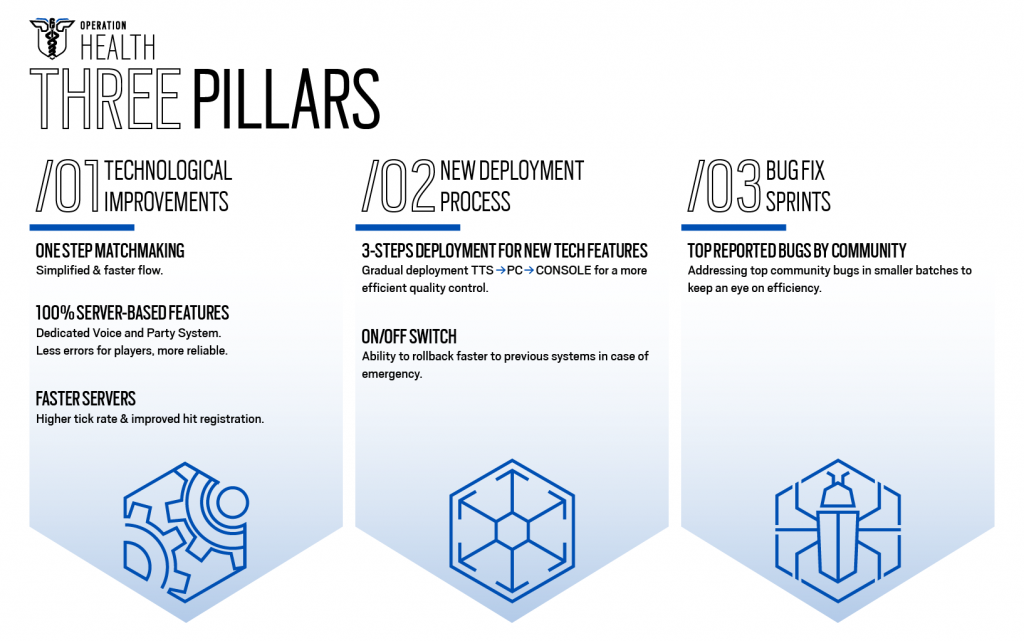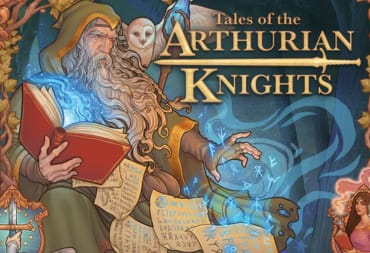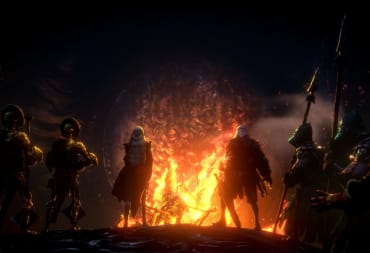There is no real debate over whether or not the gaming industry as a whole employs a plethora of highly skilled, intelligent individuals. However, even the smartest people in the world are not immune to making bad decisions sometimes, which can occasionally lead to some rather disastrous consequences in hindsight. In this case, such consequences can involve poor game sales, PR problems of varying proportions, and occasional threats of legal action. While there are plenty of cases where poor decision making torpedoed a game developer or publisher, here are six that stand out in recent memory.
Battleborn's Release Window
Conceptually, Battleborn isn't a bad game; it's not a blowout, revolutionary game either, but it's certainly not terrible. Developed by Gearbox Software, who was best known for their work on the Borderlands series, Battleborn is a hero-shooter with a dash of a few MOBA elements thrown in for good measure. There was also a PVE story mode, for those who wanted to know more about some of Battleborn's characters and backstory. Battleborn could be relatively difficult to get into, given the upgrade trees and whatnot, but generally speaking, it's not exactly a game that requires spreadsheets and a degree in min-maxing.That being said, someone, somewhere (most likely at 2K Games, Battleborn's publisher), decided that it would be a good idea to release Battleborn right around the time when Blizzard was set to release Overwatch. To be fair, it may have already been too late to change the release date by the time Blizzard announced Overwatch's release date, and you could chalk it up to extraordinarily bad luck on 2K's part, but then someone on Battleborn's marketing team decided that it would be a good idea to poke at a sleeping bear with this shot across the bow on Twitter. Long story short, Blizzard did what Blizzard does and practically smothered Battleborn in its crib, which was a complete surprise to just about no one.
Rainbow Six: Siege Operation Health
Compared to some of Ubisoft's more recent games, Rainbow Six: Siege stands out for having a consistently large audience that has grown since release, despite the game's age. You could likely attribute this to Siege's unique gameplay, which combines destructible environments with a fair degree of "tactical thinking" and "skill based gunplay." In any case, Rainbow Six: Siege isn't perfect, with quite a number of technical issues that can demonstrably impact gameplay, but that's what hotfixes, patches, and updates are for; everyone understands the need for some server downtime to crush some bugs, but then Ubisoft went a bit further with Operation Health.
Acknowledging that Rainbow 6: Siege had some very pressing issues, Ubisoft unveiled Operation Health, a three month period dedicated entirely to polishing the game. This would be fine and dandy, except for the small issue of Operation Health displacing three months of new content (new characters, weapons, and maps) that people with the season pass paid for with the expectation that they will receive said content around this time. That Operation Health failed to produce any noticeable or significant results for the end user for the majority of those three months, regardless of how fair their expectations were, didn't help much to improve Ubisoft's already less than stellar image.
On top of that, Ubisoft unveiled plans to remove maps from the game "temporarily" to "rework" them, or outright remove some maps entirely due to "the limit of our data sizes," which is rather odd for a multiplayer-only game to say the least. Granted, there were a whole host of improvements that came with Operation Health, but one can always argue that certain pressing issues, some of which have existed since launch (map lighting being the most egregious offender here), shouldn't have persisted for as long as they did in the first place. If nothing else, Operation Health highlighted how Ubisoft is struggling to make their Esport game actually Esport ready, which is never a comforting sign, and it demonstrated Ubisoft's apparent inability to relay important information to an audience without causing an angry mob to form.
No Man's Sky Marketing
No Man's Sky was easily the most hated game of 2016, and one of the few games where stories of people returning the game en masse were met with little skepticism. After all, if you promised people a literal universe, would you really be all that surprised at their reaction when you gave them the world's widest puddle instead? We aren't talking about a snake oil salesman going door to door either: No Man's Sky was promoted on national TV, and more than a few journalists, writers, and websites were not skeptical enough about all these promises being made, or were incapable of breaking through the cult-like fervor that built up around the game in the months prior to its release.No Man's Sky has improved a bit recently, but the point still stands that someone thought it would be a good idea to promote an indie game as if it were a AAA title, without the features, post-launch support, and raw manpower that a modern AAA title demands. Well, the marketing itself performed spectacularly well, it's just that there ended up being a fatal disconnect between what people expected, what the developers were reasonably capable of, and what was promised.
Evolve's Wonderfully Convoluted DLC Scheme
Evolve was a rather conceptually interesting game: rather than being a standard FPS multiplayer shooter, you get to play as one of four hunters who are trying to bring down a giant beast, or you could end up playing as said beast in a one-versus-many situation. Funnily enough, as 2K Games soon found out, an interesting concept can only take a game so far, as Evolve was soon forced to convert to a free to play model after its playerbase plummeted to some several hundred people six months after launch on Steam. It's hard to pinpoint a singular culprit that is responsible for the game's rapid decline, but one thing is for sure, Evolve's DLC market did not help bolster sales at all.On launch, there were effectively three (or more!) versions of Evolve that you could purchase. You have your base game plus season pass pre-order version for $80, then there was the PC Monster Race edition, which included the base game, the season pass, and "additional content when it becomes available after launch" for $100, and then there was the pre-order exclusive content (a single monster) that would cost $15 if you didn't pre-order the game. That's right, you could have theoretically purchased the most expensive version of the game, but if you didn't pre-order it, you would have had to fork over another $15 for content that logically should have came with the base game or even the season pass. Oh, and there were some four dozen cosmetic items that you could purchase, but they weren't included in any of the aforementioned bundles. Naturally, Evolve's developers stated that these were merely "options," but it didn't change the fact that someone thought that people would look at Evolve's DLC and say "Wow, look at all these options!" rather than "Wow, look at all this readily available content that I can't access because I didn't pre-order the game and the mega super season pass!"
Ouya's Overambition
For the last decade and a half or so, you had quite a number of options when it came to choosing a platform to play games on. You could build a PC, you could get a PlayStation or Xbox console, you could get whatever Nintendo released, or more recently, you could simply play on your phone or tablet. At one point, however, there was an attempt to create a kind of a console that could theoretically offer all the benefits of the aforementioned platforms that was cheap enough that you could buy it for about $100. Dubbed the Ouya, this ambitious project was a crowdfunding success, but, as we all know, that doesn't mean that it translated into actual sales.
As it turns out, a console that is as close to being a jack of all trades device as was realistically possible also meant that it didn't really offer consumers any reason to ditch their existing gaming platforms of choice. In all fairness, the Ouya was likely created with relatively good intentions in mind, but good intentions don't mean anything when your direct competitor offers an exponentially more powerful product or is so ubiquitous that everyone already has one in their pocket. In an ideal world, the Ouya could have opened up so many possibilities in regards to how we traditionally view gaming platforms as being a battle of extremes, but we do not live in an ideal world where little Bobby is willing to set aside a tried and true device that all of his friends are on for the sake of supporting a product that was rather literally founded on good intentions.
Pokemon GO Says No to Third Party Apps
When Pokemon: Go was released, it appeared to be the dawn of a new era of gaming. For the first time in a long time, you had an easily accessible game with mass appeal that could bring together all kinds of people regardless of whether they are young or old, hardcore or casual, introvert or extrovert. On top of that, it proved that alternative reality gaming could trounce virtual reality gaming before it got off the ground simply based on cost alone, as Oculus VR had been released a couple of months prior with a rather hefty price tag.Inevitably, some forward thinking individuals decided to create a few apps that would make the Pokemon Go experience a little more streamlined by essentially telling you when and where Pokemon spawned (the game itself had such a feature, but it was quite broken), but could you really blame them or the end users who decided that wandering around aimlessly in the hopes of catching an elusive Pokemon isn't all that practical? Unfortunately, the developers of Pokemon Go, Niantic, caught on, and by the end of the month, many helpful third party apps were axed. As it turns out, people didn't like that or the fact that the game was and still isn't entirely stable, and it created a domino effect that tanked the game's popularity, or at least enough so that every website on the face of the earth would stop talking about it day after day after day.
Of course, that's not to say that the video game industry doesn't hire intelligent people or that fate doesn't decide to rain on your parade for no apparent reason, but there are certainly times when developers and publishers alike have decided to do some decidedly not-so-smart things, seemingly of their own accord. On the bright side, at least such situations can serve as an example of what not to do should other companies ever find themselves staring down a similar path.
Have a tip, or want to point out something we missed? Leave a Comment or e-mail us at tips@techraptor.net






